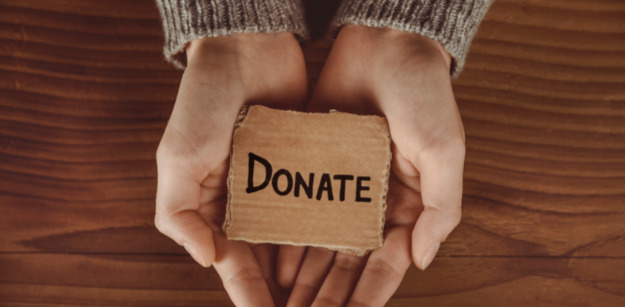At some point in time, I am sure all of us have atleast one wish to buy something that we want. Upto a big extent we succeed as well in obtaining the same. But there are some people praying, with joined hands, for a life.
I am sure we can imagine the joy of getting such a precious thing called’ life’.
A new hope begins, with a surety that one can live further in life. It is a feeling that nothing is impossible. It is very joyous being the reason for such happiness. So get yourself registered for becoming an organ donor.

Organ donation does not only affect recipient but also affects the family, friends, and colleagues around them.
Before moving ahead with organ donation, a few things need to be taken into consideration.
Read on to know about the answers to why, what and how.
The first question stands are What’s the need for organ or tissue donation.
Diseases such as cystic fibrosis, polycystic kidney disease, terminal lung illness, heart failure, irreversible liver cancer, etc. are the reason because of which the organs become weak as days pass. It ultimately leads to organ failure, in some cases. In addition, organs are damaged due to certain infections like hepatitis or injuries to the abdomen or organs. The severe pain and suffering caused by such diseases are unbearable and it becomes problematic to carry on with the daily routine. Here comes the stage for the need of an organ or tissue. Some organs and tissues are being sold for this purpose but not everyone can afford to buy them. The only option they are left with is hope. You can be their hope.
Organ & Tissue Transplantation
What is organ and tissue transplantation?
Organ and tissue transplantation refers to the process of surgically removing an organ or tissue from an individual and transferring it into another individual’s body. The person who donates the organ is known as the DONOR and the person who receives the organ is known as the recipient.
It’s been quite a long time now that brain dead organ donation or deceased donation has been popularized worldwide. Maintenance of circulation and respiration becomes possible with the invention of the mechanical ventilator and other sophisticated instruments even if the brain has been damaged irreversibly. These are known as brain stem death persons or beating cadavers. These organs can be used for transplantation. Harvesting of organs for transplantation from such a person is known as cadaver transplantation.
Organ Donated By Living Donor
It is not that only a dead person can donate an organ or a tissue. Both living as well as brain dead people can donate. The list includes:
- Kidney: a kidney is the most common donation. After donating one kidney, the remaining kidney functions and fulfils the need of the organ for both people.
- One of your liver lobe: the cells in the remaining lobe re-grows until the liver is almost its original size. This procedure takes place in a short duration for both the donor and the recipient.
- A lung or part of a lung/ part of the pancreas/part of the intestines. This organ does not re-grow. Both the remaining portion whether, with the donor or with the recipient functions fully.
Organ Transplant Organisation
The organisation which regulates the transplantation process is NATIONAL ORGAN & TISSUE TRANSPLANT ORGANISATION (NOTTO). It is a national level organisation under the Directorate General of Health Services, Ministry of Health and Family Welfare, Government of India.
There are the following two divisions under NOTTO: –
~National Human Organ & Tissue Removal & Storage Network
This division under NOTTO functions as the apex centre for all India activities related to coordination and networking for procurement& distribution of Tissues & Organs. It also deals with the registration process for Organ & Tissue Donation and transplantation.
National Biometrical Centre/ National Tissue Bank
The division acts as a tissue bank, established to fulfil the demand of tissue transplantation including the activities for procurement, storage and distribution of biomaterials.
The key role of the centre is to fill up the gap between demand & supply as well as quality & assurance.
Steps to get organ or tissue transplantation done:
1) If you want to be a donor, then you have to register yourself by filling up a pledge form. This can either be done online or at the hospital by showing interest in this voluntary process. Once the registration is done, you will receive a donor card. However, by obtaining this card it is not legally binding on the donor and the final decision whether to donate or not is a collective decision with the family members. Another kind of donation (deceased donation) may take place if the patient is declared brain dead, which means that there has been complete damage of all brain functions and the condition is irreversible.
2) A series of tests are conducted twice in the duration of 4-6 hours, by a team of hospital doctors and a civil doctor to ensure that the patient is brain dead. If no stimuli are observed then a death certificate is issued.
3) After the issuance of the death certificate the doctor informs the family about the organs which are healthy enough to be donated.
However, in both cases, whether the person is a registered donor or not, the process of organ transplantation begins only after the family gives their consent to donate organs as it is considered as the final decision. If the family gives the consent for donating the organs, the search for a recipient begins.
4) The recipient of the organ transplant needs to get registered on the waiting list handled by NOTTO. The donee then needs to wait patiently until a suitable donor is identified. Medical compatibility is assessed after the donor and the donee are traced. The donee is informed about the compatibility and transplantation can take place.